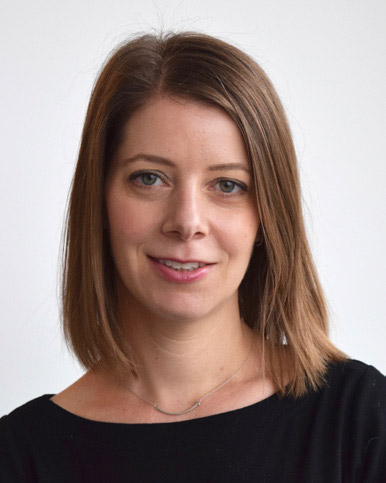CV: Dr. Jennifer Rabin
Bio basics: A scientist in Evaluative Clinical Sciences and the Hurvitz Brain Sciences Research Program at Sunnybrook Research Institute (SRI). Completed her PhD in clinical psychology (neuropsychology) at York University, in Toronto, Canada. Did her postdoctoral fellowship at Massachusetts General Hospital/Harvard Medical School in Boston, U.S. Joined Sunnybrook in January 2019 as the neuropsychology lead for the Harquail Centre for Neuromodulation.
What is your research focus?
My research involves two primary directions. As the neuropsychology lead for the Harquail Centre for Neuromodulation, one area of my research focuses on characterizing the cognitive, behavioural and psychosocial changes associated with novel neuromodulation interventions. These include focused ultrasound, deep brain stimulation and transcranial magnetic stimulation for difficult-to-treat psychiatric and neurological disorders, like Alzheimer’s disease (AD), essential tremor, obsessive-compulsive disorder, major depressive disorder and post-traumatic stress disorder.
Some of the things they’re doing are quite novel. For example, in essential tremor, they’ve already done a trial showing you can lesion a small part of the thalamus, and it helps manage the tremor on one side, but these patients tend still to have a tremor on the other side. While they’re really happy about the one side, a lot are calling back and saying, ‘We want the other side [done].’ No one’s really treated both sides, and one of the reasons is that with prior technologies, there was less precision with the technique. Now with focused ultrasound, you can be more precise.
The trial is testing the lesioning of both sides. There’s really not a lot of work showing how lesioning both sides might affect cognition. Some of the work suggested that there might be some language or speech changes, so we have developed a battery of tests to look at that in quite a lot of detail and also look at other areas of functioning. How is quality of life affected? Does the treatment end up meeting people’s expectations? Maybe their tremor has been reduced, but it’s not reduced enough that they can actually do the things they had hoped for. While it might be considered a success for the trial to reduce [the tremor by] X%, does the patient think it’s a success?
Another area of my research uses multi-modal imaging techniques to examine the factors that accelerate or protect against cognitive decline. A unique aspect of this work is the focus on individuals from ethnically diverse backgrounds. This is an important topic because the majority of research in neurodegenerative diseases has been studied in Caucasian populations. This is problematic because prior work suggests that associations between Alzheimer’s disease pathology, vascular dysfunction and cognitive decline may differ across ethnicities.
Have you always been interested in the brain?
I didn’t realize my fascination with the brain until my second year of university when I took my first psychology and neuroscience class. I was really intrigued by the idea that different [brain] regions support different abilities, and that patients can have tiny brain lesions and show massive deficits, or the reverse—that patients can have large lesions and show almost no deficits. That really fascinated me!
Why did you want to join SRI?
I was really impressed by the calibre of research, the resources available and the scientists affiliated with SRI. I wanted to be a part of that. I feel so fortunate to be a part of SRI. There’s nowhere else I’d rather be.
If you weren’t a scientist, what career would you have chosen?
I have no idea. I think it would be related because I just really like the area. I’d probably do neurology. I feel lucky that I get paid to do the things that I like and enjoy. I don’t know what I would do.
The fact that you can’t think of anything means you chose the right area.
I have a twin sister. We’re different now more than ever, and she’s in the same position. We got there from very different ways. I did my undergrad at Dalhousie; she went to McGill and we didn’t talk a lot about academics. By the end we did very similar degrees. She did her PhD and just got a job at McGill. She studies addiction. For me that’s even more reassuring that I’m in the right profession because she did it, too.
What do you like to do outside of work?
I love spending time with my family and friends. I enjoy being outside, especially in the summer. My parents have a cottage, and we try to spend a lot of time up there. I also love trying new restaurants—Toronto has a lot of great restaurants.



